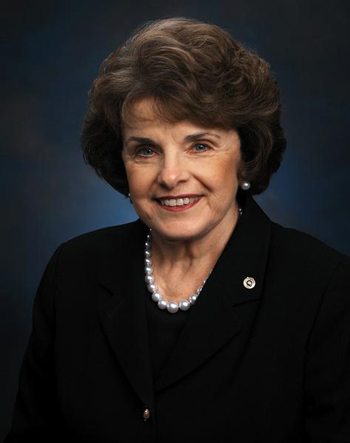
(Left) Senator Dianne Feinstein
“Defeating the Republican plan to repeal the Affordable Care Act isn’t enough—we need to make the ACA stronger. I want to make the law work better for families nationwide by addressing affordability issues within the individual market,” said Senator Feinstein. “One solution is to eliminate the sharp cut-off for financial help. A 60-year-old making $47,521 per year—one dollar more than the limit—has to pay more than $900 per month in premium costs for a standard plan in some areas of California. That’s simply not affordable. Our bill would fix this problem.”
“We should be looking for ways to improve our health insurance system – not tear it apart. This bill will help make insurance more affordable and strengthen the financial security of American families,” said Senator Warren.
“It’s time to stop the partisan nonsense, take repeal off the table and work to improve and strengthen our health care system,” said Senator Baldwin. “I have heard from rural and middle-class Wisconsinites across our state who are using nearly half of their income on health care costs and are in need of the financial help. This reform is a real solution that will allow these Wisconsin families and Wisconsinites living in rural communities to qualify for tax credits and afford the quality coverage they need.”
“Access to quality and affordable health care in America should be a right, not a privilege. It is not enough to defend the Affordable Care Act, we must figure out what more we can be doing to improve the lives of all Americans,” said Senator Harris. “Right now, many middle-class families are still struggling to afford insurance and that’s not acceptable. Let’s fix that.”
“We need to work together to strengthen the Affordable Care Act and bring health care costs down for hard-working people,” said Senator Maggie Hassan. “This bill is a common-sense step that will help to bring down the cost of premiums for middle class Granite Staters on the exchange, allowing more people to access affordable coverage and making our people and our communities stronger.”
“This is the kind of health care legislation the nation needs right now,” said Frederick Isasi, executive director of Families USA. “It improves current law to make health care more affordable for America’s families, especially our struggling middle class and older people close to retirement. This bill deserves wide bi-partisan support.”
Under current law, individuals and families making just one dollar more than 400 percent of the federal poverty level ($47,520 for an individual, $80,640 for a family of three) receive no financial help at all. This sharp cut-off contributes to affordability issues in individual markets nationwide.
Under the bill, no individual or family would pay more than 9.69 percent of their monthly income toward health insurance premiums. Currently, 9.69 percent of monthly income is the maximum contribution households are required to make toward their health plan if they make between 300 and 400 percent of the federal poverty level.
The bill would be particularly beneficial to individuals aged 50 to 64, given that plans are more expensive for older individuals.
The bill is supported by the American Association of Neurological Surgeons,
Child Welfare League of America, Congress of Neurological Surgeons, Families USA, Lung Cancer Alliance and the National Farmers Union.
Examples: Under current law a 60-year-old in San Francisco who doesn’t receive a subsidy pays a premium of $946 per month. If the subsidy cliff were eliminated and the current 9.69 percent cap extended, then that same individual who:
- Made $50,000 would pay no more than $404 per month, saving $542 per month.
- Made $65,000 would pay no more than $525 per month, saving $421 per month.
- Made $80,000 would pay no more than $646 per month, saving $300 per month.
- Made $100,000 would pay no more than $808 per month, saving $138 per month.
- Made $50,000 would pay no more than $404 per month, saving $501 per month.
- Made $65,000 would pay no more than $525 per month, saving $380 per month.
- Made $80,000 would pay no more than $646 per month, saving $259 per month.
- Made $100,000 would pay no more than $808 per month, saving $97 per month.
- Made $50,000 would pay no more than $404 per month, saving $248 per month.
- Made $65,000 would pay no more than $525 per month, saving $127 per month.
- Made $80,000 would pay no more than $646 per month, saving $6 per month.
- Made $50,000 would pay no more than $404 per month, saving $144 per month.
- Made $65,000 would pay no more than $525 per month, saving $23 per month.
- Made $50,000 would pay no more than $404 per month, saving $323 per month.
- Made $65,000 would pay no more than $525 per month, saving $202 per month.
- Made $80,000 would pay no more than $646 per month, saving $81 per month.
Source: Senator Dianne Feinstein








